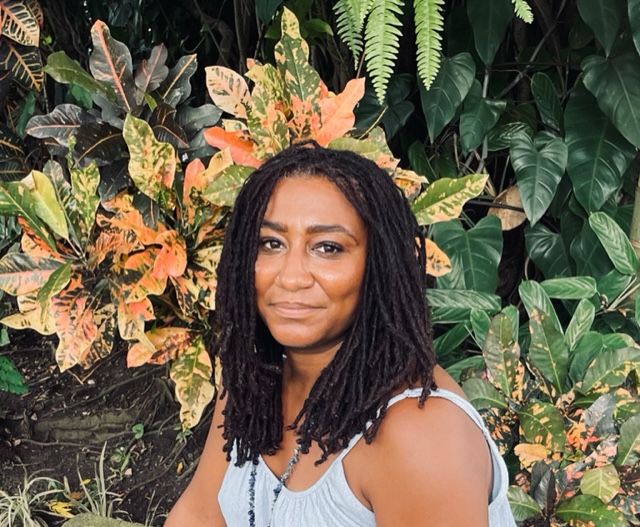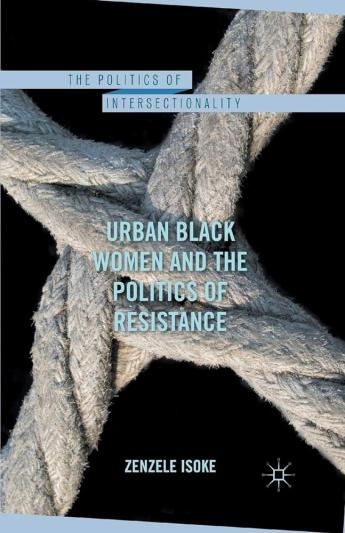Zenzele Isoke

Associate Professor, The Harriet Tubman Department of Women, Gender, and Sexuality Studies
Zenzele Isoke is a black feminist theorist, urban ethnographer, and political storyteller. Drawing from the ideas of black decolonial thinkers, Isoke writes the contemporary history of cities through the political struggles of self-identified black/queer women of the African diaspora. Writing across the fields of geography, political science, and urban anthropology, her scholarship spans several cities in the U.S., Middle-East, and the Caribbean. Her book new project: Unheard Voices at the Bottom of Empire develops a set of “counterpoetic” writing practices to theorize and explore black feminist politics through the mediums of collaborative art-making, breath and meditation, and conventional grassroots organizing in racially segregated urban spaces. She is author of Urban Black Women and the Politics of Resistance (Palgrave 2013). Her writing has been featured in several peer-reviewed journals and anthologies including Souls: A Critical Journal of Black Politics, Culture and Society, Transforming Anthropology, Gender, Place and Culture, among others. She is also the mother of two teenaged black girls, a (slowly) rising poet, and organizer in her own right. For more information, visit her faculty webpage.
Publications
Remembering Sakia, Remembering Ourselves
Epilogue to 2024 volume Queer Newark
Author/Lead: Zenzele IsokeNon-ARHU Contributor(s): Whitney Strub, Associate Professor, Department of History, Rutgers University - Editor
The book concludes with an epilogue, “Remembering Sakia, Remembering Ourselves,” by Zenzele Isoke. She speculates about what the life of Sakia Gunn, a fifteen-year-old lesbian who was murdered in Newark in 2003, would have looked like if she had not been killed, and discusses what has changed, and what has not, for Black queer youth in the twenty-one years since Gunn’s death. She also notes that while Gunn’s death did not receive the same national attention as other murders motivated by queerphobia, memorialization and remembrance of Gunn is common in Newark. This theme of remembrance ties back to the book’s introduction, in which Whitney Strub discusses the mural Sakia, Sakia, Sakia, Sakia by artist Tatyana Fazlalizadeh. Strub notes that for viewers who do not know Gunn’s story, the mural becomes a piece of queer history hidden in plain sight—a running theme for many of the stories excavated by Queer Newark: Stories of Resistance, Love, and Community.
Urban ethnography and everyday life
Zenzele Isoke writes Chapter 43 of Handbook on Gender and Cities
Author/Lead: Zenzele IsokeNon-ARHU Contributor(s): Edited by Linda Peake, Professor, Faculty of Environmental and Urban Change, York University, Canada, Anindita Datta, Professor, Department of Geography, Delhi School of Economics, University of Delhi, India and Grace Adeniyi-Ogunyankin, Professor, Departments of Gender Studies and Geography and Planning, Queen''s University, Canada
This Handbook acts as a state-of-the-art foundation for the field of gender and cities scholarship through in-depth assessments of the latest research within key areas of feminist urban academia. Multidisciplinary in its scope, editors Linda Peake, Anindita Datta and Grace Adeniyi-Ogunyankin bring together over 60 feminist scholars to present contemporary research in this important field of study.
Traveling in Black Female Flesh: The Poetics of Relation in Black Femme Ethnographies
Dr Isoke examines how the poetics of Relation can serve as alternative scholarly practice for black ethnographers
Author/Lead: Zenzele IsokeThrough experimental writing, Zenzele Isoke thinks through how the poetics of Relation can serve as alternative scholarly practice for Black ethnographers.
Urban Black Women and the Politics of Resistance
Dr. Isoke examines the role of urban spaces as critical sites of resistance for black women in this 2013 book
Author/Lead: Zenzele Isoke
Contemporary urban spaces are critical sites of resistance for black women. By focusing on the spatial aspects of political resistance of black women in Newark, this book provides new ways of understanding the complex dynamics and innovative political practices within major American cities.
Black Ethnography, Black Female Aesthetics: Thinking/Writing/Saying/Sounding Black Political Life
This essay articulates the possibilities of writing black ethnography that centers black and diasporic ways of knowing and thinking time, space, and place that are emptied of the modernist strictures of the formal essay
Author/Lead: Zenzele IsokeThis essay articulates the possibilities of writing black ethnography that centers black and diasporic ways of knowing and thinking time, space, and place that are emptied of the modernist strictures of the formal essay. Black ethnography is conceived of as a decolonial, art-making practice that refuses genre as well as disciplinarity. Elaborating on Hortense Spiller's theory of interior intersubjectivity, this essay turns toward symbolic economies of blackness rooted in alternative cosmological paradigms and lifeworlds of postslave contemporary life. Using phonoethnography to loop time, s/place, and experience backward and forward simultaneously, this essay honors the Spillerian imaginary of the "speaking flesh."

